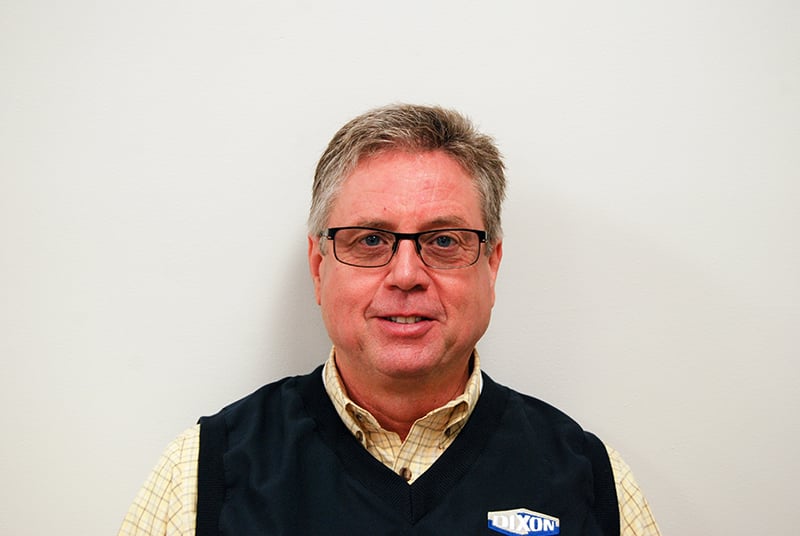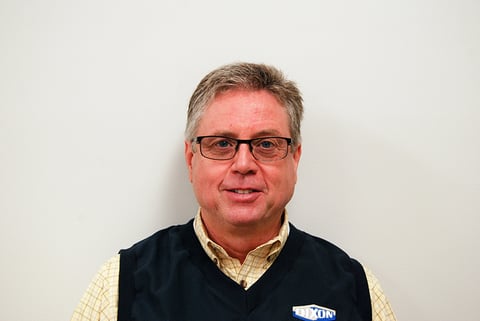
Tony Haston has been with Dixon for 26 years. Beginning his career with the company as a territory sales manager, he currently works out of Houston as an energy market specialist. Dixon’s market specialists provide technical and industry expertise in focus areas such as energy, fire, and food and beverage/pharmaceutical.
So what does an energy market specialist do?
I spend most of my time visiting various equipment manufacturers, well service companies, and drilling companies talking with management and engineering. We talk about current products and how to solve problems out in the field they’re having with safety or maintenance related to fluid transfer. We get involved in solving problems that make life easier and safer for the guys actually operating the equipment on the oil rig or frac pad.
Are there some common problems that you’re asked to solve?
As it relates to oil field equipment, we developed a mantra after dealing with the end users of the equipment. We found out that a lot of their issues come from welds or threads washing out. Abrasion gets to the parts very quickly, and any division from a smooth wall in a piece of equipment will cause the slurry to swirl around. This creates a little bit of chaos that causes even more abrasion, which could cause leaks. So we quickly developed this mantra when it comes to our products: “No welds, no threads, equals no leaks.” If we do a one-piece casting and take all those welds out, the users will have a much longer-lasting product that they don’t have to worry about out in the field. It’s been a big success.
How has the field changed in the last couple of decades?
New technology has made things a lot safer. Oil field workers were called “roughnecks” for a reason. Things used to be really tough out in the field and it took a really tough guy to manhandle the equipment. Nowadays, the equipment is much safer, much more ergonomic and you’ve got good, intelligent people out there who know how to operate the equipment without anybody getting hurt.
How do you see the field developing down the road?
The next generation of equipment is going to need to change in order to do the job faster and more economically. All the well service companies are focused on bigger, larger, faster, and safer. A lot of the older or existing equipment has to be bundled up or linked up to do the job. In the future, one large streamlined piece of equipment will be able to handle all that. Currently, a frac spread might cover four or five acres and on that work pad, there are probably 50 large pieces of million-dollar equipment all bundled up. It’s organized chaos. In the future eight or 10 pieces of equipment will be doing the same work.
You’ve been at Dixon for 26 years. What has kept you on the job?
My job satisfaction is due to Dixon being a family operation. My boss is always just a phone call away and our management team is happy to help out any way they can. The company is big enough to get the job done but small enough to communicate well. As someone who’s part of a worldwide sales force, that’s been a big help to me—and to my customers.
Have a question for Tony? Leave a comment below.
Do you have questions about your application? We would love to help. 
